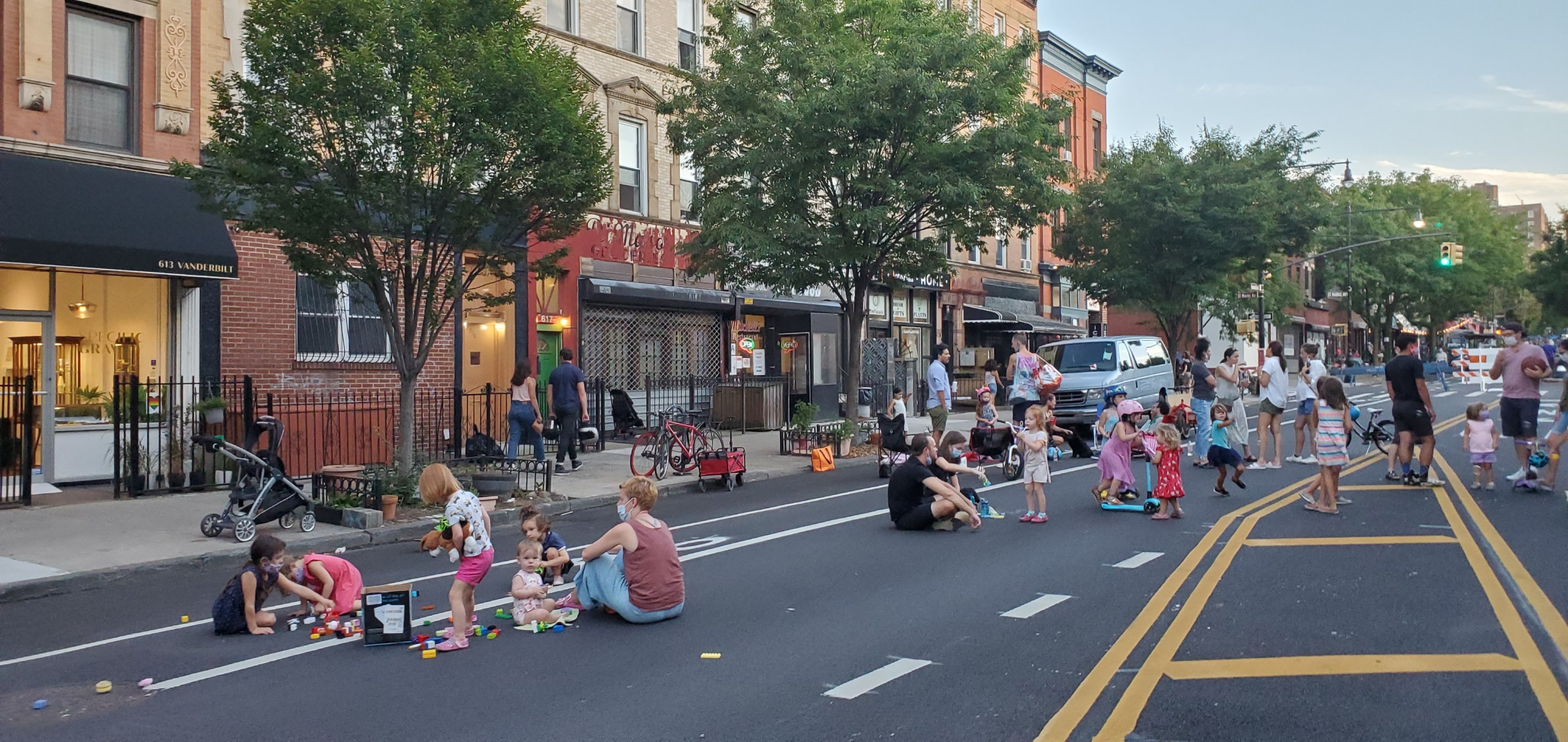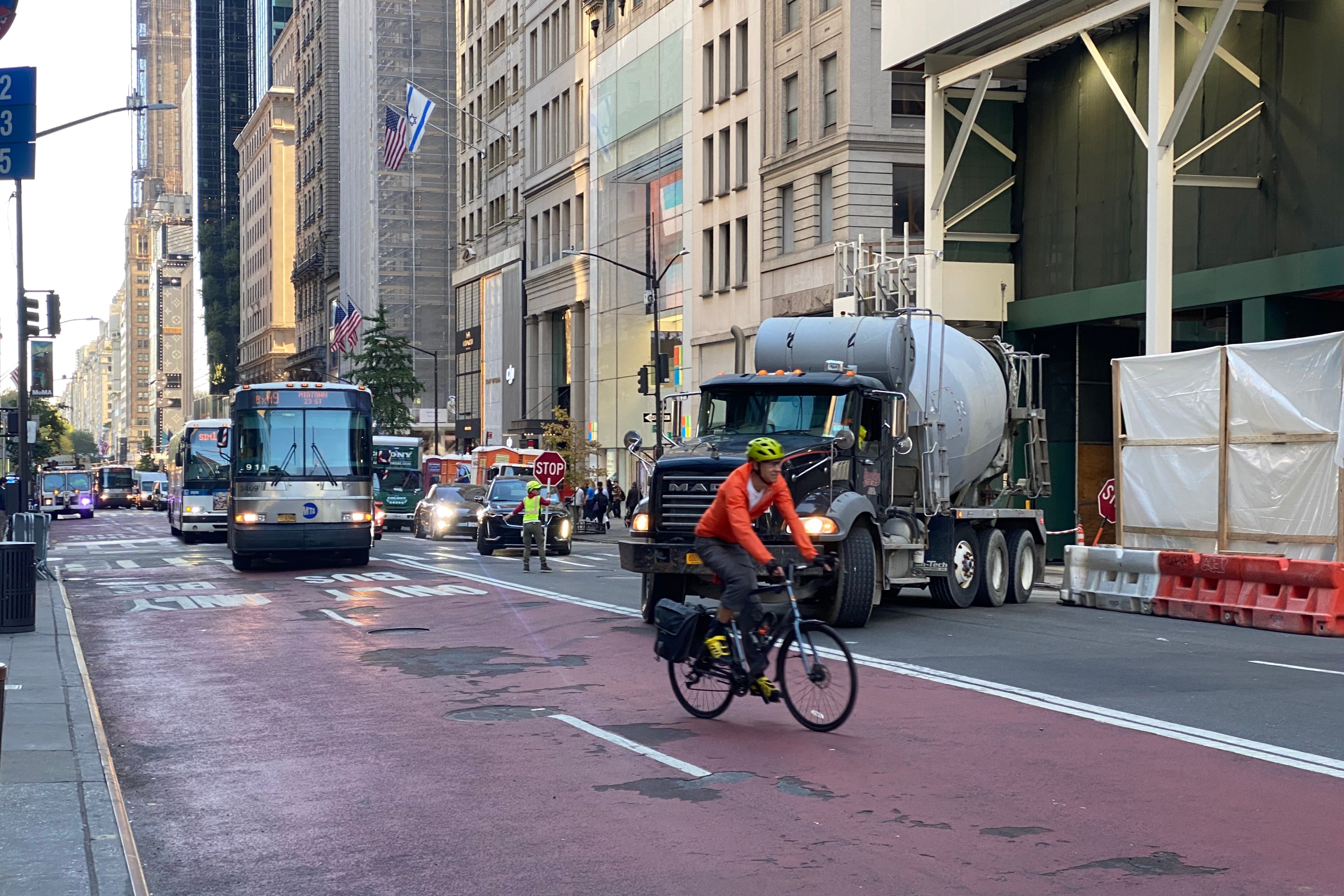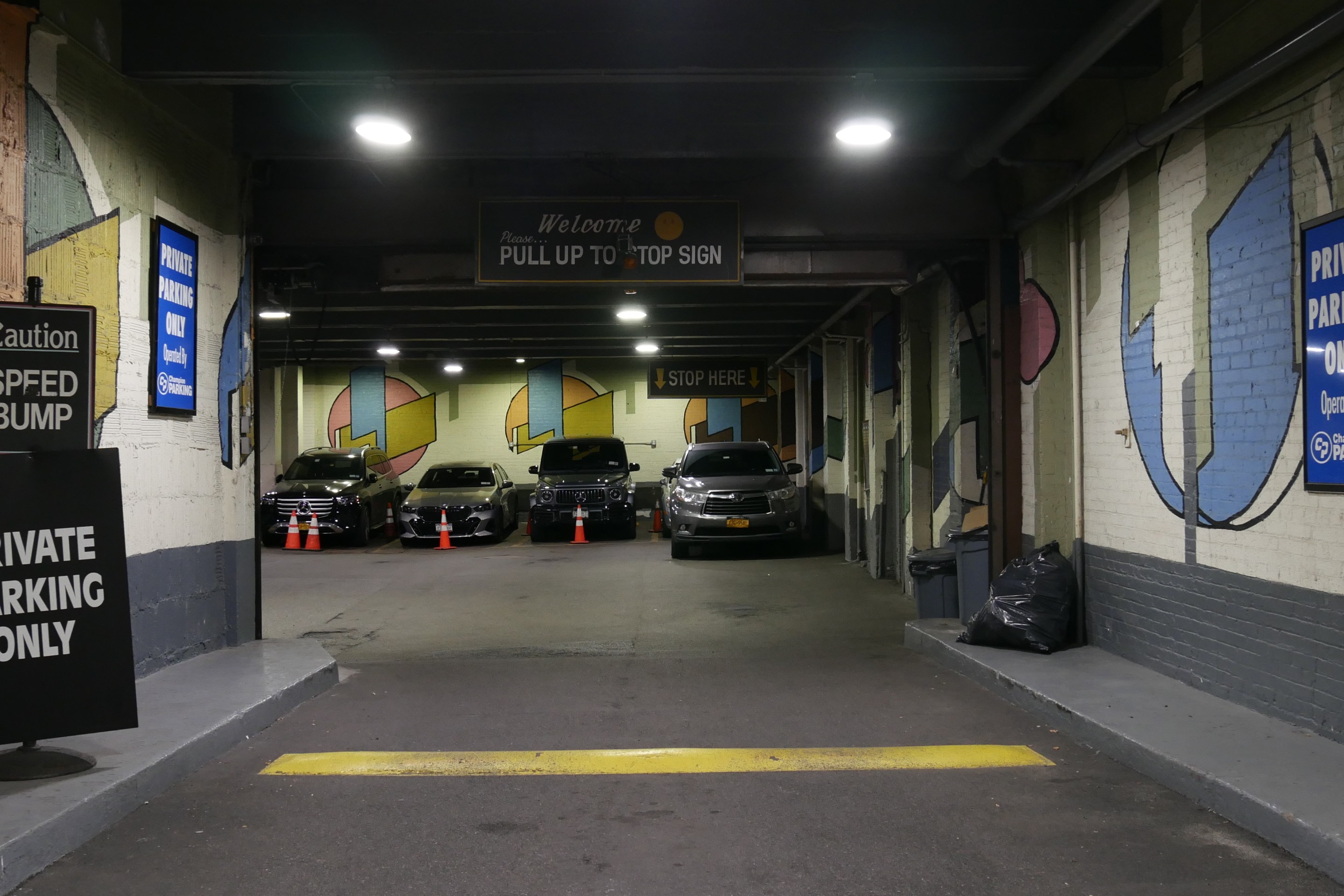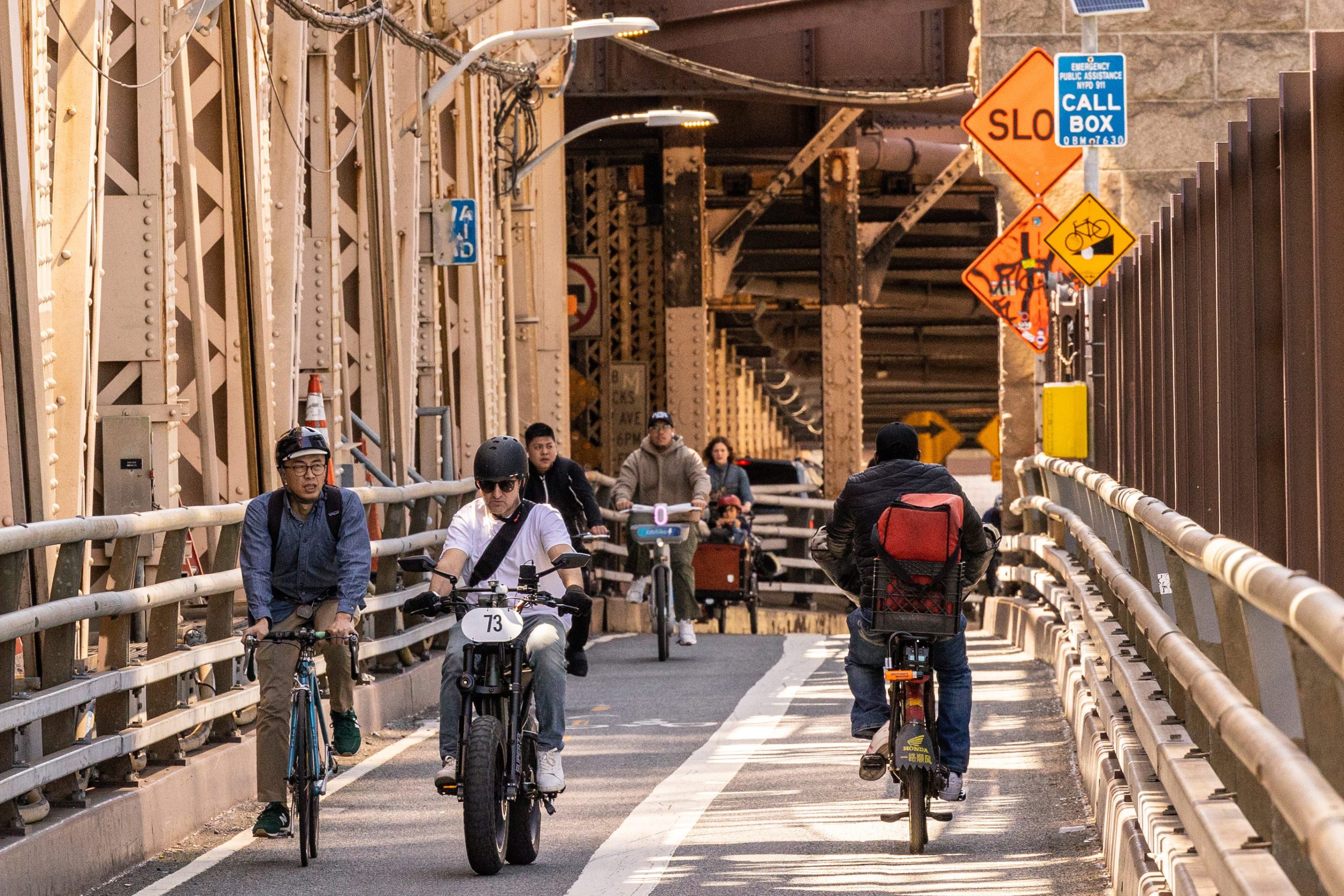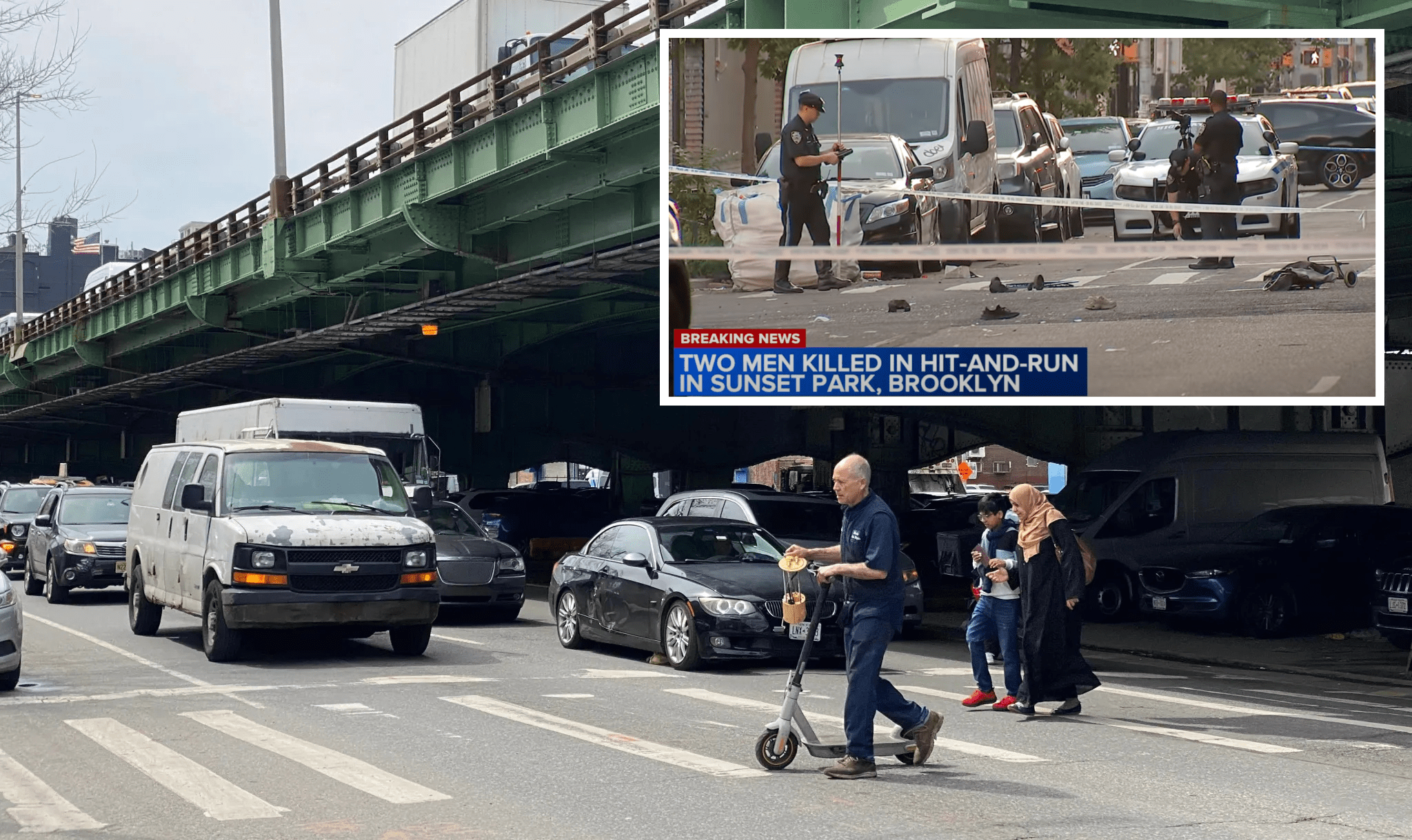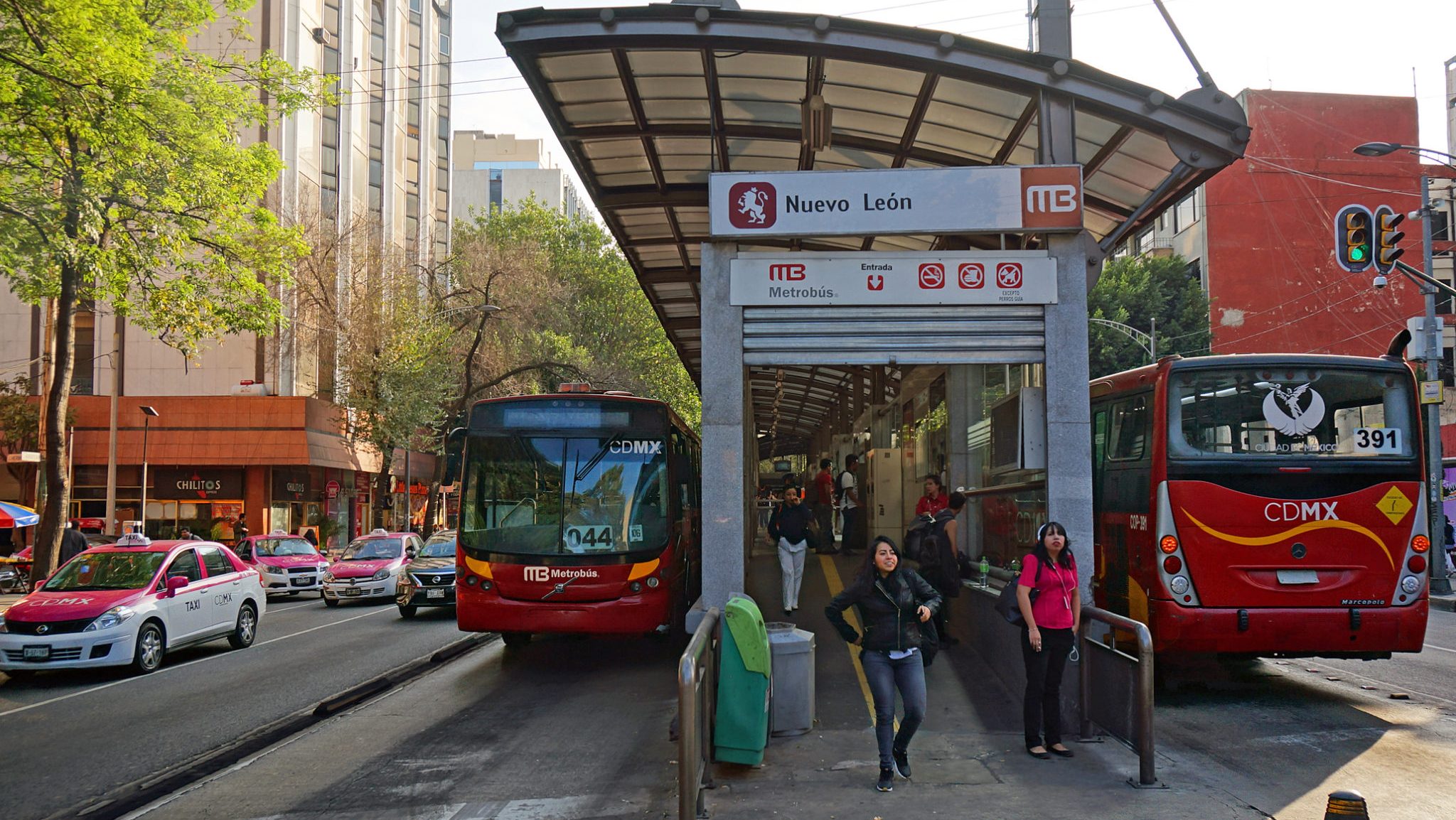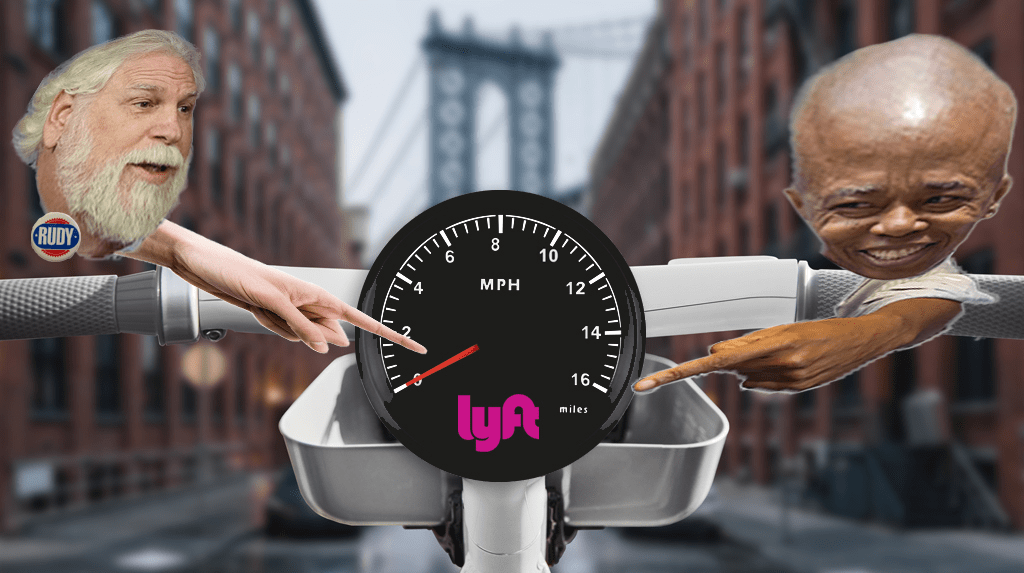The City Council will close the gap of leadership exhibited by the de Blasio administration in making permanent the open streets program — mandating many open streets, allowing for their conversion into 24-7 car-free zones and ensuring that they are equitably distributed.
The Council is expected to pass the the legislation, Int. 1933-A, on Thursday after a rally at 10:30 a.m.
The bill is an updated and strengthened version of the open streets legislation proposed almost exactly a year ago by Council Member Carlina Rivera that was never enacted because Mayor de Blasio announced his own 100-mile open streets program as the pandemic lockdown entered its second month. The open streets program was one of the administration's signature efforts to give New Yorkers space to get outside yet remain socially distanced — though it never made it to the full 100 miles (and is now about 60, according to the city). And despite the mayor's commitment to make the program permanent, planning and implementation has stalled, emboldening opponents of open streets, who have harassed volunteers (and assaulted at least one) and vandalized and stolen barricades.
Rivera has revived and tweaked her bill to once again pressure the administration to make good on its promise of a real permanent open streets program. The mayor has repeatedly been criticized for his lackluster approach after his initial success.
“It’s been one year since since the open streets program launched," Rivera told Streetsblog on Wednesday night. "Tomorrow, the Council will vote on my bill to make this critical program permanent, equitable, and flexible for communities so that all New Yorkers can enjoy this vision for our streets."
She added the bill will "make this quick-build pedestrian-focused infrastructure an essential part of New York City planning, not the exception."
The bill's summary makes it seem entirely non-controversial:
This bill would require the Department of Transportation to operate an open streets program, which would provide street space to pedestrians and other non-vehicular street users. Under this program, open streets could be managed by DOT or by community organizations. The bill would create a process by which community organizations could apply to operate an open street, require that DOT manage or provide resources to at least 20 open streets sites in areas that would be otherwise underserved by the program, and require that DOT provide resources to other open streets as available. DOT would also annually evaluate open streets to determine whether to apply further design changes, such as a conversion to a shared street or pedestrian plaza.
Many of those things are already in place or already within the DOT's power to do.
But the bill itself makes it clear that Rivera is seeking a real program that doesn't leave out neighborhoods that lack a robust and exhausting volunteer effort (such as the legions of people who maintain the 34th Avenue open street in Queens, the North Brooklyn open streets in Greenpoint, or the Avenue B open street in Manhattan) or substantial fundraising resources (such as Fifth Avenue and Vanderbilt Avenue in Brooklyn, which have raised money to hire staff to set up barricades and cones).
"An open street may be managed by the department or by a community organization designated by the department, provided that the department shall manage or provide resources for community organizations to manage no fewer than 20 open streets in areas underserved by open streets," the bill states.
At least 10 such open streets must be more than five blocks in length, the bill states, codifying into law a key demand of open streets advocates including Transportation Alternatives.
The bill also allows the DOT to create open streets that operate 24 hours a day, seven days per week, 365 days per year — up from the 8 a.m. to 8 p.m. maximum now. And some of those streets would not be merely be shared with drivers, but could be "clos[ed] to all motor vehicle traffic except as required for emergency access, where the department determines that such closure would benefit the community."
Jackson Heights's Council Member Danny Dromm has repeatedly told Streetsblog that he believes a 24-7 "linear park" is exactly what would benefit his open-space-deprived neighborhood.
The bill would also require the DOT to evaluate the open streets program every year to determine which streets would benefit from "additional traffic-calming measures and streetscape elements," such as pedestrian plazas, bollards or street barriers, tree plantings, parking removal, street furniture and accessibility improvements, and even raising of the street grade.
A DOT spokesperson said the mayor supports the bill. He recently allocated $4 million for open streets materials and to support volunteer efforts, though the council bill would presumably require more mayoral action.
“New Yorkers deserve more open space, and we’re proud to devote major budgetary resources to make this popular, transformative program permanent,” the agency said in a statement.
The mayor is wise to back the bill, as there is widespread support for both the open streets and the open restaurants programs. In a survey of 591 registered voters taken in March, Data for Progress found that 67 percent of New Yorkers think the city “was right to close its streets to cars and open them to pedestrians and restaurants.” (See chart below.)
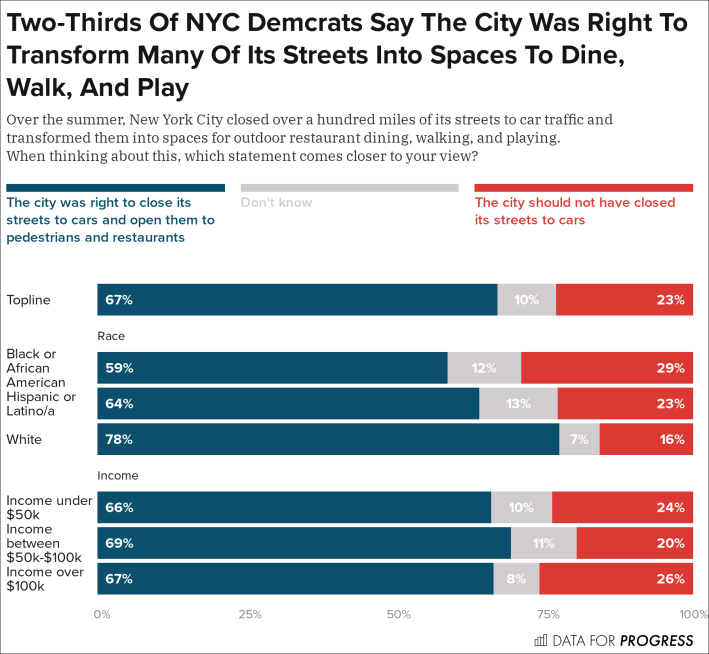
In another question, 72 percent of respondents said they prefer “livable streets that prioritize people’s needs and their safety” to 22 percent that said they prefer “streets that prioritize traffic and parking.”
